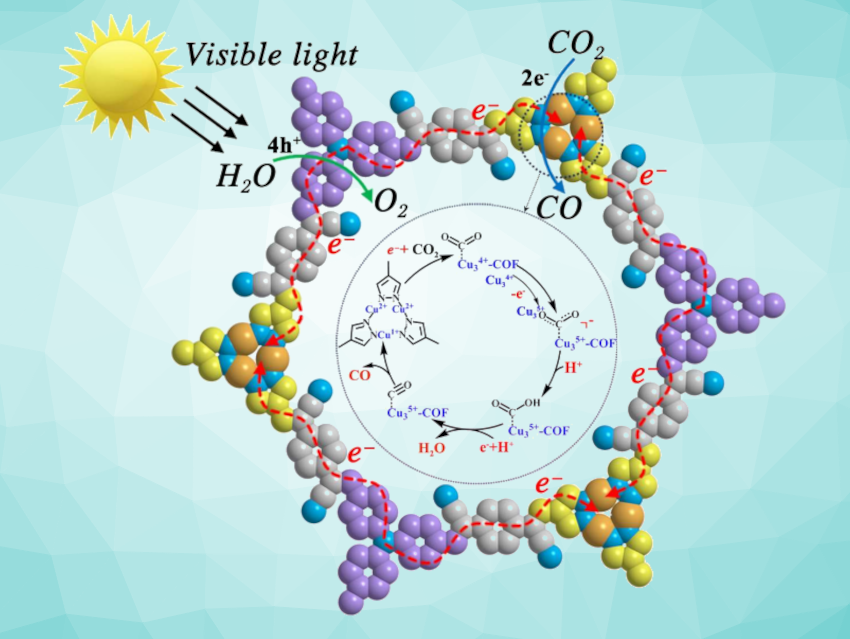Covalent organic frameworks (COFs) are porous crystalline materials linked by stable covalent bonds that can be useful, e.g., as catalysts for the photocatalytic reduction of CO2. By changing their building blocks, COF-based catalysts can be tailored to a specific application. However, they can suffer from sluggish charge separation kinetics, which can reduce the catalytic performance. Providing an improved intramolecular charge separation using a combination of electron-donating and electron-withdrawing building blocks could help to solve this problem.
Chaomin Gao, Jinghua Yu, Lina Zhang, University of Jinan, China, and colleagues have developed a metal-COF (MCOF) for enhanced photocatalytic CO2 reduction. The π-conjugated framework, called UJN-1, is connected using vinylene linkers and contains both electron-rich triphenylamine units and electron-deficient cyclic trinuclear copper units (Cu-CTUs). This donor/conjugated π-system/acceptor structure improves intramolecular charge separation and improved the catalytic performance.
The researchers found that the new framework can efficiently adsorb and activate CO2 for photocatalytic conversion to CO. When UJN-1 was used as a photocatalyst, it showed a high CO formation rate of up to 114.8 μmol g–1 with a selectivity of 95 %. According to the team, this means it outperforms most COF-based photocatalysts reported to date. Overall, the work provides a reference for the design of vinylene-linked, functional MCOFs with high charge separation performance.
- Vinylene‐linked Donor‐π‐Acceptor Metal‐Covalent Organic Framework for Enhanced Photocatalytic CO2 Reduction,
Shanshan Li, Chaomin Gao, Haihan Yu, Yuwen Wang, Shuai Wang, Wenwen Ding, Lina Zhang, Jinghua Yu,
Angew. Chem. Int. Ed. 2024.
https://doi.org/10.1002/anie.202409925


